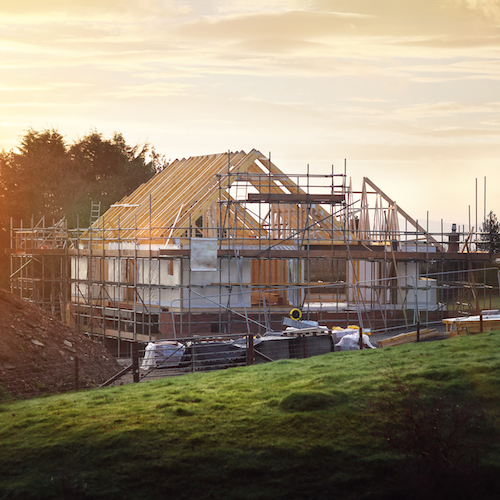Housing
April Housing Starts Post Modest Year-Over-Year Gain

Published:
Last Updated:

The U.S. Census Bureau and the Department of Housing and Urban Development reported Wednesday morning that new housing starts in April rose to a seasonally adjusted annual rate of 1.287 million, a decrease of 3.7% from the upwardly revised March rate of 1.336 million and an increase of 10.5% compared with the April 2017 rate of 1.165 million.
The revision to the March rate added 17,000 new housing starts to the previously reported total. The consensus estimate from a survey of economists expected a rate of around 1.325 million in April.
Single-family housing starts rose month over month by 1,000 in April to 894,000. The increase reflects a month-over-month decline in all regions except the South, where starts rose by 17.2%.
Danielle Hale, chief economist for Realtor.com, commented on today’s report:
We saw 894,000 single-family housing starts in April, a slight step up from an upwardly revised March figure. We remain significantly behind a normal level of 1.2 million starts. In fact, if single-family starts continue at the strong yearly growth rate we saw in April, it will be fall 2019 before annual single-family starts break the 1 million mark consistently — which is still 17 percent lower than normal.
The seasonally adjusted rate of new building permits slipped to 1.352 million, down 1.8% from the upwardly revised February rate of 1.377 million but 7.7% higher than the April 2017 rate.
Permits for new single-family homes rose month over month in April from a revised annual rate of 851,000 in March to a seasonally adjusted annual rate of 859,000. The rate rose 7.9% year over year.
Multifamily starts for buildings with five or more units increased by 7.2% year over year in April and fell by 12.6% compared with March. This number is more volatile than the single-family number and has moved mostly sideways since 2013.
In 2017, 1.202 million housing units were started, up 2.4% compared with 2016, and a 10-year high. An estimated 1.263 million permits were issued in 2017, up 4.7% year over year.
A financial advisor can help you understand the advantages and disadvantages of investment properties. Finding a qualified financial advisor doesn’t have to be hard. SmartAsset’s free tool matches you with up to three financial advisors who serve your area, and you can interview your advisor matches at no cost to decide which one is right for you. If you’re ready to find an advisor who can help you achieve your financial goals, get started now.
Investing in real estate can diversify your portfolio. But expanding your horizons may add additional costs. If you’re an investor looking to minimize expenses, consider checking out online brokerages. They often offer low investment fees, helping you maximize your profit.
Thank you for reading! Have some feedback for us?
Contact the 24/7 Wall St. editorial team.